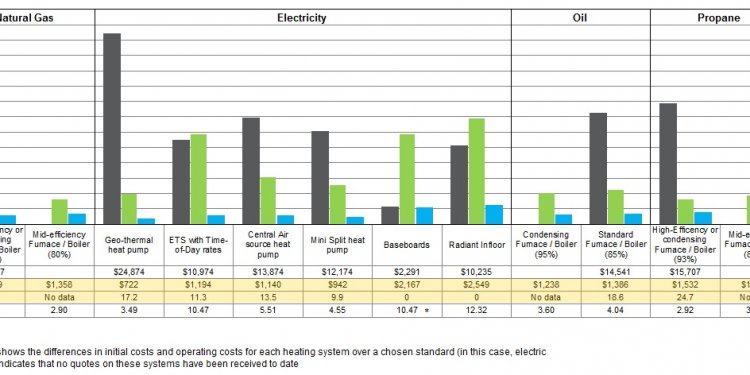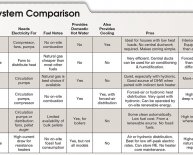
Heating system cost Comparisons
In many parts of the U.S., space heating may be the biggest solitary component of residence energy use. The sort of home heating may have a significant effect on general energy prices and on comfort and. If the existing system is over 20 years old, you may be spending a lot to ensure that it it is working - money that might better be used on a brand new, more effective system. If you are buying a unique house, picking one with a competent and well-designed heat will pay long-lasting dividends with regards to both running costs and comfort.
Choosing a proper heat, either as a substitute and for an innovative new residence, requires a simple understanding of the different forms of methods, their efficiency reviews and lasting prices (preliminary cost plus estimated yearly operating costs).
Things to consider
When selecting a heat, there are many aspects that ought to be considered:
Gas Kind or Power SourceGenerally in most places, natural gas is the most well-known area heating gas. In areas where gas is not offered, numerous homeowners temperature with propane or LP gasoline. Electric heat pumps are also good alternative, especially in less serious climates. Gas oil is less common, but nonetheless utilized in some parts of the U.S., particularly in the Northeast.
Before making a decision on a fuel type, determine which fuels can easily be bought in your town and their particular relative cost. An experienced heating contractor can offer some reasonable operating cost estimates for different fuels or energy resources. Your neighborhood electric or gasoline energy are often in a position to supply working cost estimates.
Circulation System - Required Air vs. Hot WaterMost residential heating methods use both required air or circulating hot-water to circulate the heat through the home. Forced air heating is considered the most well-known alternative generally in most areas of the U.S. heat is distributed through the entire house via air ducts and registers. Heated water or hydronic methods make use of a boiler to warm liquid that will be circulated via copper or synthetic piping, typically to baseboard radiators. Some hydronic methods circulate the hot-water through pipes enclosed into the floor slab, which then radiates the warmth uniformly through the entire space.

















